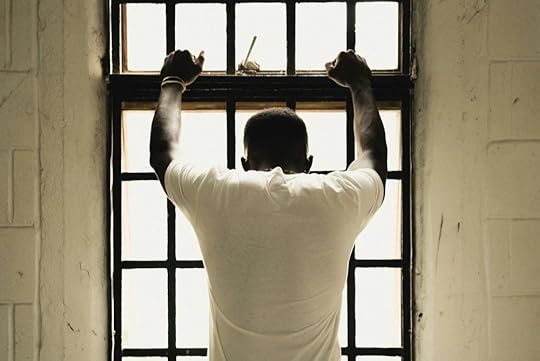Steve Addison's Blog, page 2
August 11, 2025
355-Joe’s Story (1)

The first part of Joe’s story — from prison to movement pioneer.
August 4, 2025
7 Lessons on Getting Started

Nick and Sarah Field
Some lessons from Nick and Sarah’s story of getting started in New Zealand.
Thank God for disruption. God uses calamity to unsettle Nick and Sarah, preparing them for something new.
Ask the right question. You won’t get the right answer without the right question. They asked, “What does the Great Commission look like?”
Look in the right place. They read, discussed, prayed over, and re-read Mark and Acts, and the Holy Spirit made the Word come alive.
Raise the tension. Instead of bringing Scripture down to the level of experience, the Fields allowed Scripture to question their experience.
Go. They walked away from what they knew into an unknown future, trusting that God had a plan.
Find your tribe. God connected them with others on the same journey — some in front, some behind, some alongside.
Follow the fruit. They went out looking for lost sheep and found them. Nick and Sarah have fresh stories of disciples made and churches formed. The gospel is spreading from person to person and from place to place.
Nick and Sarah know what the future looks like — “Stories like these in every region of New Zealand.”
Podcast: 353-NoPlaceLeft New Zealand
July 31, 2025
354-Acts and the Movement of God - AI Generated Discussion

AI generated version of Steve
A first for the Movements podcast, an AI-generated discussion about Acts and the Movement of God.
Let me know what you think.
Acts and the Movement of God is now available as an audiobook on Audible, Apple and Spotify.
July 27, 2025
Getting Started in New Zealand

Nick and Sarah Field
Some edited highlights of my interview with Nick and Sarah Field.
It started for us in the 2020 lockdown. We were pastors of a large church in Wellington of over one thousand people meeting as four congregations. We’d been there twenty-five years.
In the lockdown, we took time to ask: What does the Great Commission look like?
We read through Mark and Acts. We read each chapter aloud. We couldn’t get through a chapter without bursting into tears. We were a complete mess. The Holy Spirit broke us.
We read, we cried, we prayed. We'd go out for a walk and clear our heads, then we'd read the next chapter, and the same thing would happen.
The Spirit was saying to us, “There are some patterns and principles in the Gospels and Acts you need to go after.” It changed us.
What we saw in Scripture was so different from our experience. God has put a hunger in us to return to the Book of Acts.
A year later, we resigned as pastors and started pursuing movements.
We had no plan, no organization, no structures and no income.
We wanted it to be simple, Biblical and reproducing. We wanted to equip people to multiply disciples.
The day before we resigned, a couple we know rang us from Queenstown. They told us they’d started a church in their home, but had run out of steam. They didn’t know what they were doing and wanted help.
God gave us a glimpse of what he’d called us into.
For the next eighteen months, we trained people like them in how to be a church that makes disciples in their community. We even had a big fat training manual! We had the church down in Queenstown, and we planted four churches in Wellington. It was exciting. In the first two years, we were unlearning as much as we were learning.
Daniel and Marlene joined us. They wanted to reach out in their neighborhood, so during the lockdown, they started a church in their home with their family. They began inviting people who had no church affiliation.
Marlene got talking to a neighbor over their fence because you weren’t allowed to be in each other’s homes. Marlene ultimately led this lady to Jesus over the fence.
As soon as she was allowed, she became part of their church. They, discipled her and her kids. I don't think Marlene ever led anyone to the Lord before.
Not all the churches made it. For some, it was too big a step. They went back to traditional churches.
One of the churches had a wolf in sheep's clothing. They were faithfully sharing the gospel, but this person came in and caused disruption, taking a lot of energy. The church just didn't survive.
There was one family that had a window repairman working at their house. The husband shared the gospel with him and he said, That’s not me, but my partner would be interested. Can you talk to her? They reached out to her and she began attending their home church. Three months later, Kat gave her life to Jesus and is sharing her new faith with friends and family.
New Zealand, like much of the Western world, is challenging. However, we’re finding that when we train and mobilize disciples to share the gospel and read the Bible with others, there are people out there who are ready to hear and obey.
There was a couple in the first group we trained. They were talking to a friend called Quaylen over a meal. His partner, Susanna, had a Christian background. Quaylen had no faith, but was intrigued.
When they asked Quaylen, 'Do you have any spiritual beliefs?' he said, 'No.'
That night he wondered, “Why don’t I have any beliefs?”
They started reading the Bible with Quaylen and Susanna.
Quaylen works for a demolition company. He was driving in his truck, listening to a worship song that told the story of God from Genesis to Revelation. He realized, “This is true! I need to give my life to Jesus.” And he believed as he was driving his truck. He didn't tell Susanna for a month. Then just before they got married, he told her, “By the way, I’m a Christian!” Just the other night, he baptized his niece in the river.
We started prayer walking in our street. Some of our neighbors have come to know Christ and move into discipleship. The gospel has gone from them to their family and friends.
One of those friends was a lady called Vesna. She was going through a difficult divorce. Our neighbor Justine shared Jesus with her and Vesna turned to Christ and joined the church. She’s Serbian and the gospel is going from her to her family in Serbia. They meet online every week. Vesna passes on whatever she’s learning here. She’s headed to Serbia in October to train them.
When you ask, “What’s your vision?” The answer is, “Stories like these in every region of New Zealand.”
July 25, 2025
Yes, the Archbishop is a Bit Thick.

photo credit
Speaking to the Cambridge Union recently, the former Archbishop of Canterbury, Justin Welby, said he was “thick” not to recognize that faithful and committed same sex relationships are a “huge blessing”.
Welby said, “When they fall in love, and when they live out that love faithfully and with stability and caring for others, it is a huge blessing for them and society; and I have seen that in so many places that, in the end, even I began to realise that I was being thick.”
“Falling in love” is all the reason he needs. How culturally attuned.
Contrast Jesus, who affirming Genesis said, “‘Haven’t you read,’ he replied, ‘that at the beginning the Creator “made them male and female,” and said, “For this reason a man will leave his father and mother and be united to his wife, and the two will become one flesh”?”(Matt 19:4-5)
Jesus came to fulfill Scripture, not to overturn it. Yes, the archbishop is a bit thick — only a fool builds a house on sand.
Movements rise as they align themselves with the Word and the Spirit, pursuing the core missionary task of multiplying disciples and churches to the glory of God, for every people, in every place.
The Church of England has wasted decades discussing and debating matters that are settled in Scripture. It was always coming to this point. It’s time to break with those who defy the teaching of Scripture and return to the task of making disciples who, unlike the archbishop, learn to obey Jesus’ commands (Matt 28).
July 15, 2025
353-NoPlaceLeft New Zealand
A conversation with Nick and Sarah Field about reaching their nation. Listen for the stories; they are the evidence of a movement of God.
July 13, 2025
Tell me the stories

My latest project is a book of stories and examples from around the world, of the movement of God.
I’m writing about those places where the Word is going out in the power of the Holy Spirit, through ordinary people, and the fruit is disciples and churches to the glory of God, among unreached people groups and in unreached places.
I’ve been on a search that has taken me to faraway places — Ethiopia, war-torn Lebanon, the prisons of Texas, sunny California, Communist Laos, Islamic Iran, and Indonesia — looking for stories, searching for the signs of God’s activity.
Some people look for the data. Eventually, I get around to the data, but I’m listening for stories. That’s what the Gospel writers and the book of Acts give us — real people, real stories. You can touch and see the movement of God, or it’s not there. The shepherd who leaves the 99 and brings back one. The son who returns to his father. The woman who weeps tears of loving gratitude. The thief who cries out from a cross for mercy. The soldier who watches Jesus die.
I drove in India for ten days, and everywhere I went, I met people who had a story to tell — forgiveness of sins, healing of bodies, the outbreak of peace. Dad was a lazy drunkard, look at him now — a Godly man who serves his family.
I’ve walked into death row and heard the praises of God sung by murderers, saved by the grace of God. I’ve met the widow whose husband was murdered by government agents. For twenty years, she has continued his work of winning disciples and planting churches in unreached places.
Tell me the stories, and I’ll tell you if it’s a movement of God.
July 10, 2025
352-Our Weakness and the Movement of God
The power of God is unleashed when we trust him in our weakness.
June 22, 2025
What the Iranians Taught Me

I spent a week in Istanbul interviewing Iranian disciples who had come out for training. Men and women living under the threat of arrest and imprisonment for their faith in Christ.
The people I spoke to were leaders. Each had thirty to over one hundred churches in their streams of multiplication. The churches are made up of 4-5 people.
They represent one network in a movement of God across the Islamic Republic, which is unprecedented in the 1400 years since Islam conquered Persia.
I’ve been listening to the recordings of my interviews with these brave people. Here are some of the recurring themes that provide insight into how God is at work.
1. Disillusioned with IslamNo matter how religious or secular their home, they all went to schools that imposed Islam by threat and intimidation.
They had to learn to recite the Quran in Arabic, pray and fast. Outwardly, they complied; inwardly, they rebelled.
Long before they became aware of Christ, their hearts had grown cold towards the faith of their birth. What I saw went beyond disillusionment to anger and antagonism.
A generation of Iranians has turned their back on Islam and are doing just enough to avoid getting into trouble.
This should be obvious to anyone who has met Iranians in the West. Many are as secular as Europeans.
With these Iranians, forget about using the Quran as a bridge to the Gospel. They’re ready to hear about Jesus.
2. Personal crisisIranians face the same struggles we experience in life. A medical crisis, financial insecurity, marriage breakdown, bouts of depression, and the death of a loved one. Life happens, and these issues shake them to the core, just as they do to us.
They ask, “Why?” Or “How do I get through this time?” They turn to God, hoping they are not alone. In desperation, they pray. But they are not praying to the god of Islam.
When her parents divorced, one Mahsa moved in with her grandparents. Mentally, emotionally, and spiritually, she was empty.
Her husband, Arash, struggled with depression, and the couple felt a great burden over their lives. Due to economic sanctions against the regime, Arash was in and out of contract work. Then their son required urgent medical treatment, which they could not afford.
When a relative shared with her, Mahsa turned to Christ. Arash could see the change, but was not sure if he could commit. As their son was being prepared for surgery, Arash received a message confirming he had been offered a position with a company in Europe. He fell to his knees, weeping and acknowledging that God had heard their prayers.
3. Searching for GodUnmoored from Islam, many went on a search of different religions, including Christianity. They went to the library, and they scoured the internet. One man asked his uncle, who lived overseas, to send him a Bible in Farsi. Another served in the military with Armenian Christians who lent him a small Bible to read. Others watched movies about Jesus on smuggled CDs.
One man bought a box set of CDs about the Kurdish warrior Saladin, only to discover upon arriving home that the CDs were actually about the life of Jesus in Farsi!
Many were impressed when they discovered that Jesus was a man of peace, who died a violent death for the world’s sin.
Often, these searches were kept secret even from friends and loved ones, out of fear of the regime.
4. Signs along the wayAt least one in four of the people I interviewed had a dream that pointed them to Jesus. One woman dreamt of a huge mountain with a figure of light pointing to a Cross on a lake. She heard thousands calling her to go towards this sign.
Someone else remembered visiting a historic church building and seeing a painting of Jesus and Mary; he experienced a deep peace, which he didn’t understand but couldn’t forget.
One man remembers a beloved uncle who gave him a Cross as a piece of jewelry. He always cherished it and wanted to know the meaning of the Cross and who Jesus is.
Another remembered how his father had always spoken well of the Christians he grew up with.
5. Someone they loveUniversally, the final breakthrough came when someone they loved and trusted took the risk to share with them. A cousin, a colleague, a husband or wife sat them down and told them how Jesus had changed their life, explained the gospel, then challenged them to repent, believe and be baptized.
When their loved one explained, the response was often immediate: “I want what you’ve got!”
I noticed that one name kept coming up, we’ll call her “Nadia.” She had been the starting point for so many people in the room. Yet everyone in the room could tell the stories of the people they led to Christ because someone had trained them to pass it on.
Amin said, “I was very desperate, disappointed. I had financial problems, family problems, and Nadia shared the gospel with us. We’ve known her from childhood, and I trust her with all my heart, so the moment that she shared the gospel with us, we both accepted it. Now we’re doing for others what she did for us.”
Invariably, the gospel goes from new disciples to their world of relationships, but carefully. They test and see whether it’s safe. Sometimes parents who are strict Muslims don’t know of their adult children’s new faith. One disciple had not shared with his mother until a health crisis shook the family. She turned and believed, and he baptized her.
This list is not a formula. It’s a recurring pattern of how God is working to bring salvation to the Iranian people, inside the country and around the world.
June 16, 2025
Pray for the Movement of God in Iran

I’ve just returned from a visit to the Middle East. I made it out just in time.
I spent a week interviewing Iranians who had temporarily left Iran for training—men and women from Muslim backgrounds who are now followers of the Messiah.
During the training, I’d grab someone and take them out for an interview. It’s not safe to release the audio, but I will be writing the stories up for my next book.
I was impressed with how ordinary these people are. They’re not superheroes; they’re legitimately afraid of what could happen when they return to Iran. Each one could seek refuge in the West. They don’t. They go back because they want to share the Jesus whom they have met with their friends and family. They’ve started over 2,000 churches.
Their churches are small. It’s safer that way. They don’t draw attention to themselves. The gospel spreads through tight relational ties—from friend to friend and relative to relative.
All they have are the Scriptures, sometimes just the New Testament, and a simple pattern of discipleship. This is a movement, so the newest disciple is a disciple maker. They know what to do because someone has trained them.
I dropped by to say goodbye the day they left for Iran. We sat down and read the story of Paul’s shipwreck on the way to trial in Rome (Acts 27). I asked them, “What’s God up to in this story? Why is he allowing his messenger to suffer?”
It was a holy moment. I was there as their teacher. The wise old guy who writes books about movements. They were there, with Paul, in the hurricane, trusting God to get them to Rome, where they would bear witness to the Lord Jesus.
We said goodbye, unaware that the war with Israel was about to explode.



